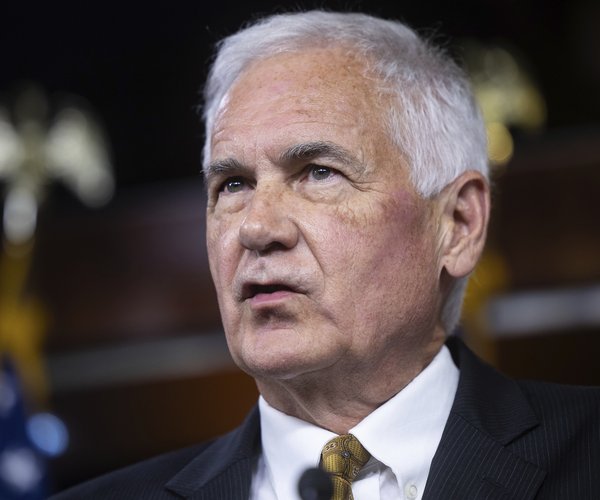The federal government is debating an issue that hits close to home for many Central Valley farm families including Turlock-area almond growers Scott Hunter and Ron Macedo.
Hunter grew up on his parents’ farm in Livingston, where he said he learned a work ethic that helped develop his character. He hopes to pass on the farm to his own children someday.
Local almond grower and Turlock Irrigation District Director Ron Macedo also grew up on his parents’ farm. He picked sweet potatoes and would often ride a tractor cutting potatoes the tractor missed.
Hunter and Macedo are the sole owners of their respective farms, but many other growers are not and if the U.S. Labor Department has its way children of those farmers may not receive the same hands-on training and experience Hunter and Macedo did.
The U.S. Department of Labor has received heavy criticism for a proposed regulation that would bar children under 16 from working on farms that are not solely owned by a child’s parents. Specifically, it would bar children from agricultural-related jobs such as operating power equipment, driving tractors or four-wheelers, branding and breeding farm animals, working with manure and working on ladders above six-feet high.
In early February the Labor Department announced that it plans to modify the regulation but nothing since has been released. California Farm Bureau Director of Labor Affairs Bryan Little said the Labor Department has yet to act on plan.
“They will likely propose a revision to the rule and then issue a final regulation, but they haven’t done anything yet,” he said. “California Farm Bureau maintains this is an example of overkill. Equipment is much safer now. This would be disruptive of rural life where kids work on their family farms or their neighbor yards.”
The Labor Department's proposed law is focused on protecting children working in agriculture. According to the Journal of the American Medical Association, agriculture has the second highest fatality rate among young workers, ages 15 to 24, at 21.3 per 100,000 full-time equivalent workers, compared to 3.6 across all other industries. The most common cause of deaths among young workers was from farm machinery, in particular over-turned tractors, according to the Bureau of Labor Statistics.
Macedo said he understands that accidents happen, but the benefits of learning about hard work far outweigh the instances of accidental death or injury.
“I think this is simply an invasion of privacy. One part of working on a farm as a kid is learning about safety. I think all of us who grew up on a farm learned about family structure, work ethic. We all knew the danger and I understand that they want to keep kids safe, but at what cost?” he said.
Hunter agreed with Macedo.
“I’m sure there are examples of kids working their childhood away and parents who abuse their children’s labor but the vast majority of parents don’t want to see their kids get hurt and wouldn’t put them in a situation to get hurt. The benefits of teaching responsibility, character and work ethic — this is what founded America,” he said. “You can always make a law using safety as the reason and you can use that to be intrusive. What happened to personal responsibility? Eventually, we are all going to suffer from a nanny state.”
Hunter also wondered how any governmental body could even enforce that kind of rule.
"The Department of Labor appreciates and respects the role of parents in raising their children and assigning tasks and chores to their children on farms and of relatives such as grandparents, aunts and uncles in keeping grandchildren, nieces and nephews out of harm's way," Secretary of Labor Hilda Solis said in a statement.
Stanislaus County Farm Bureau Governmental Affairs Director Tom Orvis was suspect of the rule.
“It is just curious as to why they would do this. It is hard to say what the reason would be. We support keeping the labor laws where they are at now,” he said.
Orvis said the law would directly affect the future of young farmers involved in organizations like the Future Farmers of America.
A new national advocacy group called Keep Families Farming has formed in response to the outcry. More information can be found at www.keepfamiliesfarming.com.





